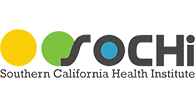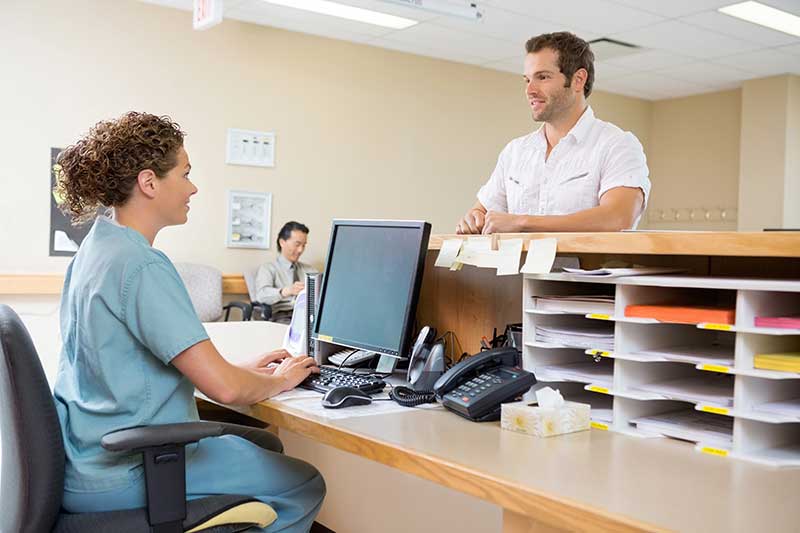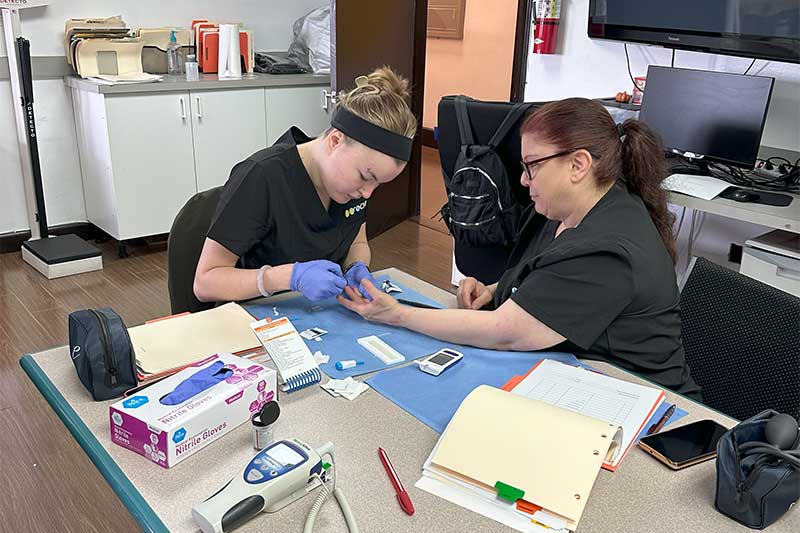Medical offices can feel like bustling hubs of activity. Amid the physicians, nurses, and patients, a professional ensures everything runs smoothly in these hectic environments—the medical office assistant. But what exactly does a medical office assistant do, and what makes their role so indispensable?
If you’ve been considering a healthcare career but aren’t sure where to start or want to understand the value these professionals provide, this post will cover all the essential details. We’ll explore their key duties, required skills, and how their role fits within the wider healthcare system.
What Is a Medical Office Assistant?
A medical office assistant (MOA) is the backbone of any medical office, clinic, or healthcare facility. They specialize in managing administrative and clinical tasks to create a seamless patient experience and ensure healthcare professionals can focus on their primary responsibilities.
Medical office assistants often serve as patients’ first point of contact, greeting them and managing appointment schedules. They play a dual role by handling administrative work while sometimes assisting with basic clinical procedures, depending on the scope of their training and the facility’s needs.
Key Duties of a Medical Office Assistant
The responsibilities of a medical office assistant may vary based on the size and type of healthcare facility they work in, but here are the primary duties they are generally tasked with:
1. Patient Interaction and Communication
At the heart of their job, medical office assistants liaise between patients and healthcare providers. Key duties include:
- Greeting patients and managing check-ins.
- Collecting patient information, such as insurance details and medical history.
- Addressing patient inquiries, both in-person and over the phone.
- Explaining processes such as billing or consent forms.
This aspect of their role ensures patients feel welcomed, informed, and cared for.
2. Scheduling and Appointments
Medical office assistants are in charge of managing the chaos that often accompanies multiple patient appointments each day. Their tasks include:
- Coordinating and scheduling patient appointments.
- Managing cancellations and rescheduling requests.
- Ensuring physician’s and other healthcare providers’ schedules are optimized without overlaps or downtime.
A well-organized calendar keeps the workflow efficient while reducing delays.
3. Administrative Duties
Administrative tasks are a significant part of an MOA’s role. These responsibilities include:
- Managing patient records, ensuring they are up-to-date and accurate.
- Handling billing and processing insurance claims.
- Ordering medical supplies and ensuring office equipment is functioning.
- Maintaining compliance with healthcare regulations and privacy laws like HIPAA (Health Insurance Portability and Accountability Act).
These tasks may seem behind the scenes, but they’re crucial for ensuring operations run smoothly and patients receive the care they need without hindrance.
4. Basic Clinical Assistance
Depending on their training, some medical office assistants perform basic clinical support, including:
- Measuring and recording vital signs (e.g., blood pressure, height, and weight).
- Preparing examination rooms and sterilizing medical instruments.
- Assisting physicians or nurses during routine exams or minor procedures.
- Providing patients with instructions for at-home care or next steps.
While clinical tasks may not be a daily responsibility for every MOA, their additional flexibility can make them invaluable team members.
5. Technology Management
With healthcare going digital, medical office assistants often manage the technology used in medical practices, such as:
- Electronic Health Records (EHR) systems.
- Appointment and patient-management software.
- Communication platforms for telehealth services.
Being tech-savvy is a growing must for MOAs to stay efficient in increasingly digital workplaces.
Essential Skills for a Medical Office Assistant
MOAs need a unique combination of skills to handle the complexity of their role. Here are the key abilities required to thrive in this field:
1. Strong Communication Skills
Medical office assistants communicate with diverse groups of people daily, including patients, families, physicians, and insurance representatives. The ability to convey information, empathetically, and professionally is crucial.
2. Multitasking and Organization
Running a medical office involves juggling various responsibilities at once. MOAs thrive under pressure by using strong organizational skills to prioritize tasks, manage schedules, and handle patient records without errors.
3. Tech Proficiency
Familiarity with healthcare software, electronic records, and appointment scheduling platforms is necessary for modern medical office management. Additionally, knowledge of basic troubleshooting can help keep operations running smoothly.
4. Attention to Detail
Whether it’s accurate data entry, maintaining confidentiality, or following up on delayed insurance claims, an eye for detail prevents costly errors in healthcare.
5. Compassion and Empathy
Working closely with patients—many of whom may be anxious or unwell—requires a caring and empathetic disposition. Medical office assistants set the tone for how patients feel about their healthcare experience.
6. Adaptability
Every day in a healthcare facility is unpredictable. From last-minute appointment changes to handling patient emergencies, MOAs must think on their feet and adapt to dynamic situations.
Why Are Medical Office Assistants Vital to Healthcare?
Healthcare facilities are complex ecosystems. Without skilled medical office assistants, this system could falter. Here’s why their role matters:
- Patient Satisfaction: They often shape a patient’s first impression, alleviating stress and confusion through friendly communication and efficient organization.
- Streamlined Operations: MOAs take the administrative burden off healthcare providers, allowing them to dedicate their time and energy to patient care.
- Regulatory Compliance: Navigating healthcare laws and ensuring data security are critical, and well-trained MOAs help facilities avoid legal complications.
- Efficient Workflow: MOAs ensure schedules and records are optimized, enabling seamless interaction between the various moving parts of a healthcare organization.
Interested in Becoming a Medical Office Assistant?
If the thought of combining organization, communication, and compassionate care appeals to you, pursuing a career as a medical office assistant could be an excellent choice. Many vocational schools and community colleges offer programs that provide certification and hands-on training to prepare you for the role.
A Few Steps to Get Started:
- Research Certification Programs: Look for accredited medical office assistant programs, often offered under medical administration schools.
- Gain On-the-Job Training: Entry-level positions in healthcare offices can help you learn the ropes and gain valuable experience.
- Stay Updated: With the rise of telemedicine and digital tools, keeping up with industry trends is vital for staying competitive.
Elevate Healthcare, One Appointment at a Time
Medical office assistants or medical administrative assistants are much more than administrative workers—they’re the linchpins of patient experiences and healthcare efficiency. Their role combines diverse responsibilities, from organizing patient care to optimizing office workflows, making them fundamental to modern healthcare systems.
Whether you’re a professional curious about this career or pursuing opportunities to improve your healthcare practice, it’s clear that skilled medical office assistants make a difference in every patient’s healthcare journey.
Are you ready to make an impact? Equip yourself with the skills and knowledge to thrive in this essential healthcare role!




